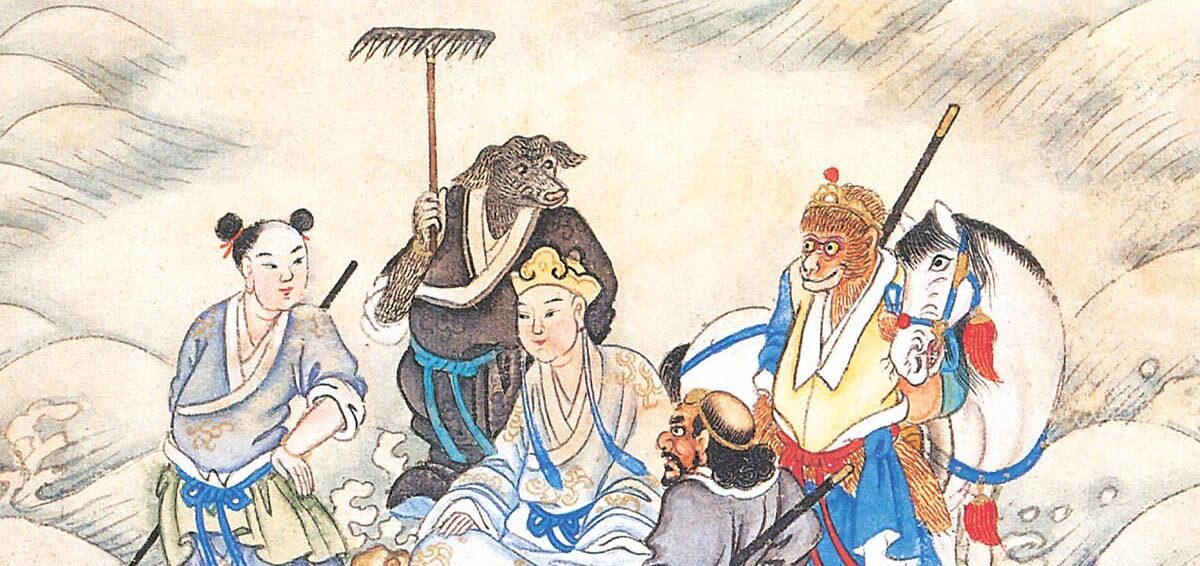Speaker: Richard G. Wang, University of Florida
Date and time: Wednesday, March 20, 2024, 14:00 (London)
Location: Room 8 & 9, Faculty of Asian and Middle Eastern Studies
Abstract: The past decade has witnessed a paradigm shift in the study of the epic novel Xiyouji 西遊記 (Journey to the West). A new generation of Chinese scholars have collected liturgical texts in Buddhism and popular religion, and interpreted the novel from the ritual perspective. This lecture as part of this trend also construes XYJ from the angle of the rites of passage. But this reading concerns a specific rite of passage, more literal than metaphorical. This is the multiple Daoist investitures of Sun Wukong, or Monkey, as he progresses in his religious cultivation and the plot advances. After detailed textual analyses and comparison, I argue that Sun Wukong’s martial power and merit-making in subduing demons is rewarded Daoist investiture. Structurally, Sun Wukong should be recognized as the protagonist of XYJ whereas Xuanzang, or Tripitaka, as his master elicits his service in exorcistic battles in conquest of monsters.
Speaker: Richard G. Wang received his PhD from the University of Chicago. He is Professor of Chinese Studies and Religious Studies at the University of Florida. He is also Courtesy Concurrent Professor at the Research Institute of Chinese Classics, Fudan University, and Guest Director of Studies (Directeur d’études invité) at la section des Sciences Religieuses de l’École Pratique des Hautes Études. His research focuses on Daoism, Chinese fiction, and religion and Chinese literature of late imperial China, in particular the Ming dynasty (1368-1644). He is currently exploring the Daoism and local society in the Ming as well as the religious dimensions of Ming novels. His teaching interests include Taoism and Chinese culture, Chinese culture, Pre-modern Chinese fiction in translation, Journey to the West, Dream of the Red Chamber, East Asian Martial Arts Classics, and Self and Society in East Asia. He has published the following books: Lineages Embedded in Temple Networks: Daoism and Local Society in Ming China; The Ming Prince and Daoism: Institutional Patronage of an Elite; The Ming Erotic Novella: Genre, Consumption, and Religiosity in Cultural Practice; (collated and ed.) Maoshan zhi (The Gazetteer of Mount Mao), (co-edited with Li Tiangang) Religion and State in Local Society in Late Imperial and Modern China (in Chinese), and The Romantic Sentiment and the Religious Spirit: The Late Ming Literature and the Intellectual Currents (in Chinese).
“Book Culture in Buddhism and Beyond” Lecture Series:
This new lecture series, launching in Michaelmas Term 2023, features talks on writing and publishing in the Buddhist tradition and in related religious and cultural spheres. Lectures in this series offer insights into the various ways in which writing and printing has been shaping Buddhism, as well as the multifaceted impact of Buddhism on book culture in East Asia, past, present, and future.
Registration is not required. The lectures are free and open to scholars, students, and the public.
Please note: all events take place in person at the University of Cambridge. Exact times and location will be circulated via email and posted on the webpage of Faculty of Asian and Middle Eastern Studies.
This lecture series is organised by Dr Noga Ganany (ng462@cam.ac.uk) in the Faculty of Asian and Middle Eastern Studies at Cambridge with the generous support of the Glorisun Global Network.

